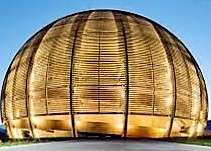Speaker
Description
Neutron capture cross-section measurements are fundamental in the study of astrophysical phenomena, such as the slow neutron capture (s-) process of nucleosynthesis operating in red-giant and massive stars. One of the best suited methods to measure neutron capture (n,γ) cross sections over the full stellar range of interest is the time-of-flight (TOF) technique.
TOF neutron capture measurements on key s-process branching isotopes are very challenging due to the limited mass (~mg) available and the high experimental background arising from the sample activity and the dominant neutron scattering cross section. As a consequence of these challenges, only five out of the 21 key s-process isotopes ($^{63}$Ni, $^{151}$Sm, $^{171}$Tm, $^{147}$Pm y $^{204}$Tl) have been measured by means of the time-of-flight technique to date. Overcoming the current experimental limitations requires the combination of facilities with high instantaneous flux, such as n_TOF, with detection systems with an enhanced detection sensitivity and high counting rate capabilities.
This contribution will review some of the latest developments in detection systems for (n,γ) measurements at n_TOF. The focus will be set on i-TED, an innovative detection system which exploits the Compton imaging technique to reduce the dominant neutron scattering background. The discussion will be illustrated with preliminary results of the first measurement of the s-process branching-point reaction $^{79}$Se(n,γ).
